#Dual-Class
Text
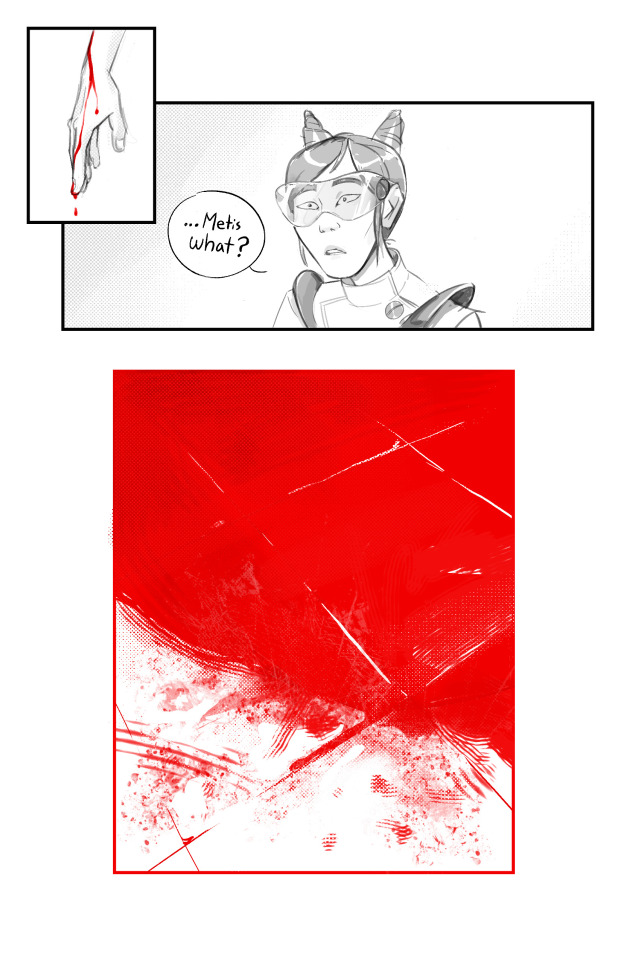
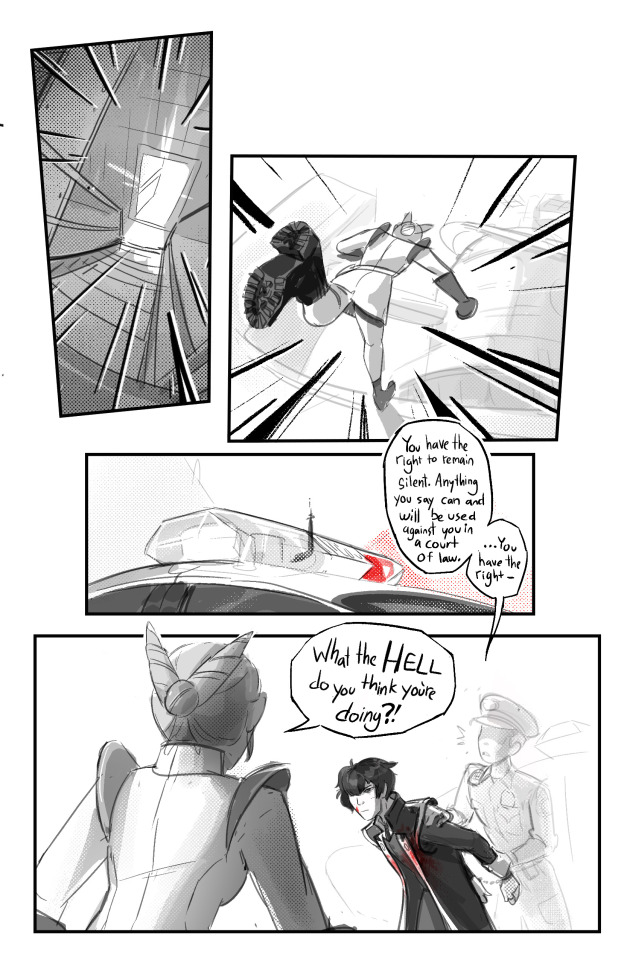
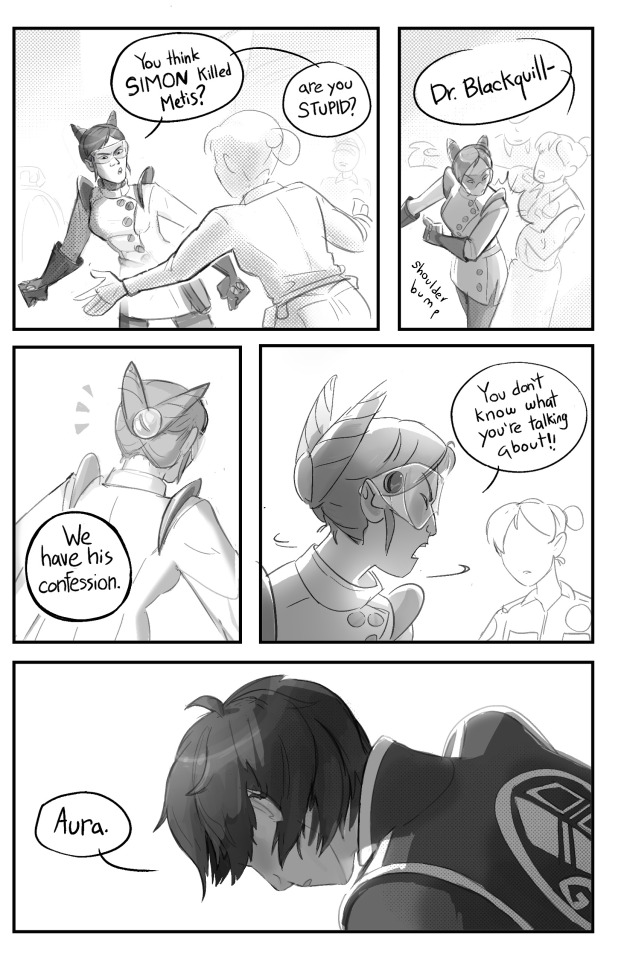

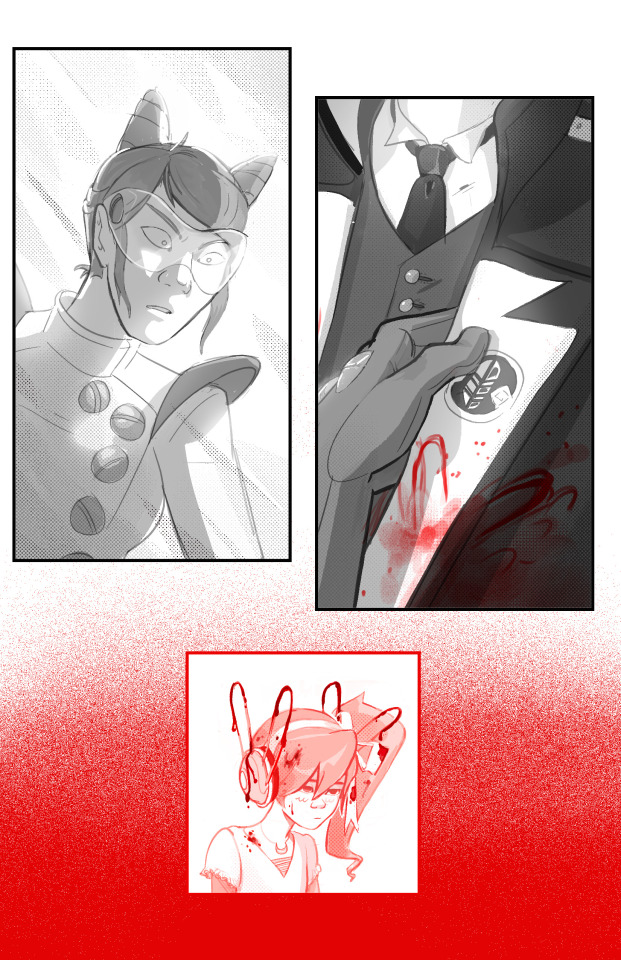

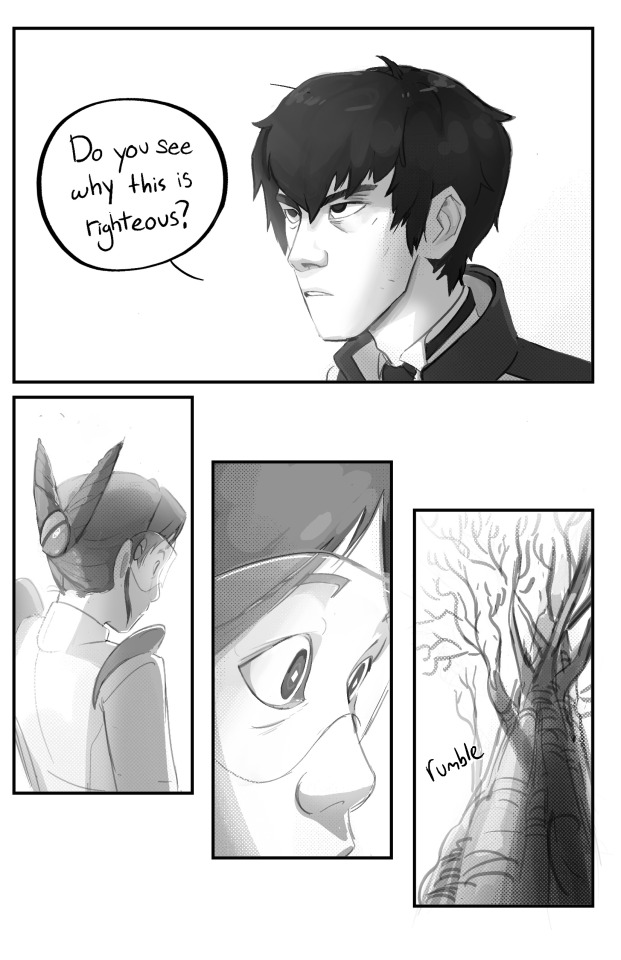
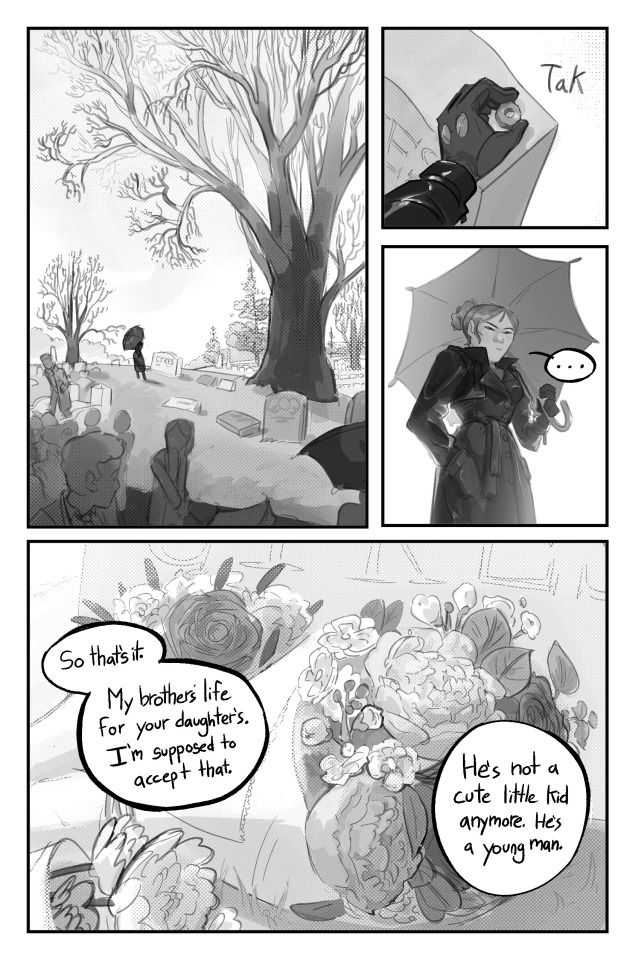

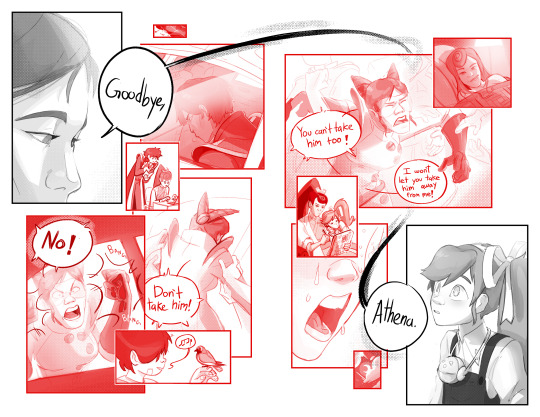


sinner, you better get ready
#aura blackquill#simon blackquill#athena cykes#ace attorney#dual destinies#i know i should have looked up japanese funeral traditions for Metis but researching it made me sad. sorry >_<#Also I hope Aura's critique of masculinity comes thru- that its constructed to extract value from the working class & excuse state violence#it changes how I percieve Auras resentment of Athena- its almost less directed at her and more at the concept of innocence itself#that is: the binary of innocence & guilt which a foundational myth of the carceral state and simon wields against himself to save athena.#ANYWAY Aura have big tiddy and hate the system and that is why we simp#Also the subtitle is a linga ignotica lyric and a folk song
3K notes
·
View notes
Text
the 150% of the courseload thing for multiclassing sucks, by the way. especially since aguefort is a school where you’re set up to be in an adventuring party. you should not be punished with an insane workload to help round out your party. it should be harder, sure, but not impossible. balance that shit based on level distribution
#this is NOT a comment or complaint on how the game is being run it’s a comment on how schools work and shouldn’t work#kids should just be allowed to explore options in high school and be allowed to be kids!!#dimension 20#fantasy high#fantasy high junior year#fantasy high junior year spoilers#fhjy#this is also def just triggering to me since i gave myself an untenable workload junior and senior year of high school#(my school had 4 classes a semester. senior year i was in 3 APs and a dual enrollment class)
669 notes
·
View notes
Text



they're so domestic oh my gooooddddddddd i cannot stand them. just fuck already jesus christ
#ace attorney#dual destinies#phoenix wright#miles edgeworth#bobby fulbright#narumitsu#wrightworth#these photos r from a few weeks ago i havent had time to play since my classes started 😞
127 notes
·
View notes
Text
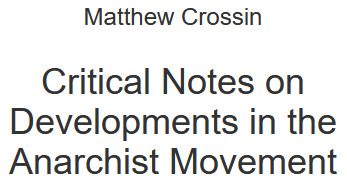
Anarchists and Neo-anarchists: Horizontalism and Autonomous Spaces
It is not uncommon, particularly in North America, to see anarchism defined as an ideology rooted in ‘direct democracy’, consensus decision making, and the maintenance of ‘horizontal’ (i.e., ‘non-hierarchical’) social relations, particularly in autonomous zones or public spaces.
This idea of anarchism is unusual in that it places at the centre of its definition an adherence to very specific forms of procedure and interpersonal behaviour while downplaying the political ends a ‘horizontal’ movement should be trying to establish. From this perspective, reclaiming public space as an opportunity to hold non-hierarchical public assemblies, where we can hammer out decisions by consensus, is, in itself, ‘anarchist’ – whatever the result of such processes.
This has little to do with the classical, mass-anarchist tradition and its politics of revolutionary socialism. It is, instead, an approach which is better described as falling under the banner of ‘neo-anarchism’ (or ‘small-a anarchism’). Neo-anarchism is a modern conception of anarchism largely informed by the feminist and peace movements of the 70s, the environmental movement of the 80s, the alter-globalisation movement of the 90s, and the Argentinian uprising of 2001; which coined the term horizontalidad (‘horizontalism’) to describe the movement’s rejection of representative democracy, the use of general assemblies to coordinate activity, and converting abandoned or bankrupt factories into cooperative businesses.
Take, for instance, the insistence by neo-anarchists on the use of consensus decision making. Though consensus (or ‘unanimity’, as it was typically called) was sometimes a feature of anarchist political organisations, and often seen as an ideal to work towards through comradely discussion, it was never a fundamental component of the anarchist movement. Anarchists have generally agreed that the appropriate form of decision making depends on the circumstances concerned, and frequently endorsed variations of majoritarian voting; particularly in mass organisations based on commonalities other than close-ideological affinity, such as unions. The focus for anarchists has generally not been the form of decision-making, but instead the principles of free association and solidarity. Furthermore, though anarchists have always stressed the right ofthe minority to be free of the majority’s coercion, it is even more important that the great majority be free of minoritarian rule or sabotage. As Malatesta wrote in his pamphlet Between Peasants: A Dialogue on Anarchy:
everything is done to reach unanimity, and when this is impossible, one would vote and do what the majority wanted, or else put the decision in the hands of a third party who would act as arbitrator, respecting the inviolability of the principles of equality and justice which the society is based on.
In response to the concern over minoritarian sabotage, he continues by asserting that such a situation would
[make it] necessary to take forcible action, because if it is unjust that the majority oppress the minority, it’s no more just that the contrary should happen. And just as the minority have the right of insurrection, so do the majority have the right of defense, or if the word doesn’t offend you, repression.[3]
As for ‘autonomous zones’ and the tactic of reclaiming public spaces (as seen in the Occupy movement) – here we have no connection to anarchism as a revolutionary tradition, and an example of a tactic which has repeatedly shown its inability to extract significant reforms, let alone revolutionise production and destroy the State.
The fundamental limitations of the ‘public occupation’ or ‘autonomous zone’ , and the defeats which have followed from these limitations, have led some former advocates of the strategy to make a notable transition from neo-anarchism to parliamentary politics. Though inexplicable to some outside observers, the change is easily understood when we consider neo-anarchism’s peculiar view of ‘direct democracy’, or ‘horizontally organised spaces’, as the defining characteristic of anarchism, and not a theory of libertarian revolution against the State and capital.
If we accept the idea of anarchism as proposed by the neo-anarchists, there is no fundamental contradiction between anarchism and involvement in parliamentary politics. If the political party is a directly democratic one, composed of social movements, and committed to horizontal interpersonal relations, what difference does it make if the decision made (ideally by consensus) is to campaign for political candidates, or even administer the State?
We have seen this with the so-called ‘Movements of the Squares’ in Europe. Activists who took part in the 15M (or ‘Indignados’) movement in Spain abandoned their dismissal of all politicians (“¡Que no nos representan!” – “They don’t represent us!”) with the formation of Podemos and various other ‘municipalist’ parties.[4]
A similar trajectory was followed by the anthropologist David Graeber towards the end of his life. Graeber – a figurehead of Occupy Wall Street and, prior to that, a participant in the alter-globalisation movement – apparently saw no contradiction between his professed (neo-)anarchism and his efforts to join the British Labour Party in support of Jeremy Corbyn. In particular, Graeber was enthusiastic about the Labour-affiliated organisation Momentum; an outgrowth of the Corbyn leadership campaign, which he argued constituted a unique attempt to fuse a radical social movement with a traditional parliamentary party.[5]
More recently we have witnessed the absurdity of a self-proclaimed ‘libertarian socialist’, Gabriel Boric (who touts his association with Chile’s radical student movement), ascending to the presidency in the aftermath of a militant popular uprising.
The damage caused by these supposedly ‘unique’ attempts to translate the ‘horizontalism’ of neo-anarchism into the party-form – which, in reality, hardly differs from the historic approach offered by Marxists as an alternative to anarchism – has been outlined well elsewhere, and there is no need to go over the details here.[6] It suffices to say that in each case there was bureaucratisation, accomodation with the necessities of administering the capitalist state (or even just campaigning to administer it), and zero empowerment of workers against the bosses.
The reality is that there is no way to fully ‘prefigure’ anarchy and communism through ‘directly democratic’ spaces of ‘autonomy’. Anarchism requires a specific anarchist movement and anarchist practice. Though we must certainly organise ourselves from the bottom up, with a consistent federalist structure, we can not simply bring about our ideal by ‘living anarchisticly’ or relating to one another as ‘horizontally’ as possible. Similarly, the content of anarchism can not be limited to the structure of our movement – its content of revolutionary class struggle must be maintained. To quote Luigi Fabbri:
If anarchism were simply an individual ethic, to be cultivated within oneself, and at the same time adapted in material life to acts and movements in contradiction with it, we could call ourselves anarchists and belong to the most diverse parties; and so many could be called anarchists who, although they are spiritually and intellectually emancipated, are and remain, on practical grounds, our enemies.But anarchism is something else… proletarian and revolutionary, an active participation in the movement for human emancipation, with principles and goals that are egalitarian and libertarian at the same time. The most important part of its program does not consist solely in the dream, which we want to come true, of a society without bosses and without governments, but above all in the libertarian conception of revolution, of revolution against the state and not through the state… [7]
#anarchist movement#autonomous zones#class struggle#criticism and critique#dual power#Elections#horizontality#insurrection#Notes#organization#Red and Black Notes#riots#social change#autonomy#anarchism#revolution#climate crisis#ecology#climate change#resistance#community building#practical anarchy#practical anarchism#anarchist society#practical#daily posts#communism#anti capitalist#anti capitalism#late stage capitalism
30 notes
·
View notes
Text
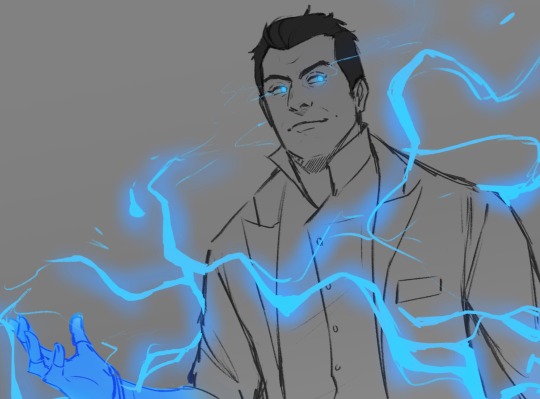
Warlock/Rogue Michael is happening!!
#you guys dont understand#IM OBSESSED#I spent all day drawing this#oh and yeah he’s a warlock dual classing as a rogue too#and Davey is his patron#michael de santa#gta v#fanart#dnd#gta fanart#gta 5#my art#mir art
76 notes
·
View notes
Text

looping echidna beastlife gif from trying to figure out toonboom
#based loosely off the bird who keeps taunting my cats through the window. brown headed cowbird who will sit there#and flap it's wings and yell until the cats show up and then it starts pecking at the window and jumping back and forth in front of them#weird bird.#it's done this for like two years now i think#anyways. sound it makes when it fluffs up is vaguely similar to echidnas birdsong soundboard noise thing. so. yeag#whisp whispers#my art#ALSO. ANIMATION PRECOLLEGE IS SO AWESOME. IM SO. AHRHRHNFMDM GET ME OUT OF HIGHSCHOOL PRLESDRRRE GIVE ME AN ART TEACJER WHO CARES ABOUT ART#it's so awesome here. toonboom access!!!! this is so awesome. guys toonboom is so awesome. not to turn a hobby into a job but like i was#genuinely kind of sad when i didn't get to go to school over the weekend it's so awesome here. who was going to tell me college doesn't suck#miserably all the time. like it's a precollege but still this is so ??? so much better than anything i've done in the past 8 years#<-except for fine crafts one i miss u fine crafts ...... not even a fine arts credit. but it was a nice class#anyways point being. hm. maybe i could animate for a job. i used to think about it but hs art magnet is so bad guys it's so bad .and i#was like hm this sucks actually. also like worst period of my life but that's unrelated . but this is so. nice? and im DOING things and i#feel like i'm learning??? god i hope dual enrollment goes well maybe i will be able to make it through college...#im so. this is so awesome. precollege animation 2-week intensive thing i love you i love you i love you#BTW GUYS DID YOU KNOW ALL AUTODESK PRODUCTS ARE FREE AS LONG AS UR IN ANY SCHOOLING. MAYA. FOR FREE. FOR AS LONG AS ENROLLED IN ANY SCHOOL#AND THEN SOME !!! i don't even like 3d modeling that much but. maya for free??? that's awesome. that's awesome!! anyways#rambling. i think i missed all normal tags. uhhhhhhhhh#beastlife#<-oh no i only missed that one. awesome. guys i love it here this is so. arbrnsnnm i love you figure drawing. i'm having fun!#with charcoal!!!!! i thought i hated charcoal but this is like !!!!! so aweosme ?????? i'm#this is so awesome. this is so awesome. !!!!!!!!!!!!!!
19 notes
·
View notes
Text

this didnt post when i was stuck in school because there is no service. i wrote so much beautiful prose and it is all lost
#they make me stay in the library all day despite having zero classes#my ass hurts from the chairs#im technically not full time dual enrolled so they wont let me leave#im usually at the college 2-5th period but semester hasnt started yet#i hate everything#and the computers they give us are chromebooks so i cant even read homestuck on the unofficial hs collection#more complaints to come#jade harley#art#homestuck#hom3stuck
77 notes
·
View notes
Text
That feeling when you get a 5 on your AP 2D portfolio and a 4 on your AP Precalc exam B)
#ap tests#ap scores#ap classes#I might have to take another ap class this year by force :(#I’m gonna see if I can change it for a dual enrollment class instead#I would post some here but I fear I have already posted them on an account where irl follow me#and I do not wish to be found#high school#inkyarcturus babbles :p
12 notes
·
View notes
Note
it feels so crazy that I’m older than you because even though it’s literally just by *one* year it’s like. I’m in college and you’re in high school. and that’s so crazy bizarre to me. you should be in college at the same time as me skip 12th grade 🫴
okay 💖 yay 💖
#i am in college a little bit#every other day i get to go to College Campus for 3 hours and work on math stuff at College :3#and my english class is a dual enroll thing
7 notes
·
View notes
Text
Potentially the only good thing about the SCOTUS affirmative action decision is that now whenever white moms are being delusional and accusing us of not admitting her kid because we’re “discriminating against him for being a straight white male,” I get to say “actually due to the scotus decision (that you’ve been so excited about for years) all racial and ethnic identifiers are blocked out from applications so we literally are physically incapable of seeing them when evaluating so this was based on your child’s academic skills which I gotta say. Not great”
#she doesn’t have a response to that!!!#eat shit karen#scotus#affirmative action#us politics#also this for dual enrollment in high school!!! if ur kid is already struggling in high school courses don’t stress them out#by making them do college level classes while also doing all of their high school work#which she is holding him back from graduating from high school#so he can continue to do dual enrollment after he’s technically eligible
11 notes
·
View notes
Text
school is starting on i think tuesday? so rest in peace getting the recommended eight hours of sleep it’s been great
#i dual credit and preap in some subjects and im doubling up on another so i have more room in my schedule next year#so i am going to D I E but at least its less money wasted on college since i still havent a clue what id wanna major in#i’ll figure it out eventually#but good GRIEF i am afraid#rambles#i dont think ill have too much trouble?? like the specific classes arent ones i struggle with much it just seems like a ton of work but ill#figure out how to balance it#and most of the teachers are the ones people love so hopefully they wont make it too difficult#ANYWAYS…. STILL NEED TO GET BACKPACK TOGETHER.#i will survive by naps and naps alone#but also i function well on little sleep so i should be fine
11 notes
·
View notes
Text
Y'all. If u are in college. If ur advisor isn't doing their job. Request another one. Do not hold out until ur senior year. Do not assume they will get better at their job. They will not. And u will find out the graduation application was due LAST SEMESTER and ur transfer credits STILL AREN'T FIXED and u MIGHT NOT GRADUATE NOW
#breaducation#holy shit guys I'm so tired#i scheduled my classes by myself in high school (dual enrollment) but then i hit college#and bc i was so used to freely doing it myself i didn't care much that my advisor. was not doing their job bc whatever I'm doing it anyway#that was the wrong response. if i don't graduate this semester I'm going to bake myself into a loaf of bread. the angriest loaf of bread u#can imagine
7 notes
·
View notes
Text
Rambly first impressions but I'll probably be turning DT around in my head for a while still. Spoilers obviously touched on but I try to be vague about it as much as possible X'D
Overall I enjoyed it! imo it was far from their strongest expac and is admittedly pretty low on my mental expac tierlist (fittingly, about equal with ARR, which isn't a bad thing per se), but it did a decent enough job at what it did, especially so in the first half. I'm in love with Tural and the people, the cast of characters, the lore - it was all delightful!
I absolutely understand peoples complaints about their presence feeling kind of pointless at times, but I also didn't mind taking a side/mentor role either (I've had potential plot/headcanons for Ahru doing as much for a long time now, so it works for me). I don't think they always balanced it well at all, though.
I also would have loved to see more interactions between, say, the Scions and Lamaty'i, but it was nice taking things at a slow steady pace and just enjoying the world building. They had a lot on their plate to show us, and they did it well.
The second half... played with some themes I enjoyed well enough, but suffered from some questionable writing that often gave me whiplash.
I love!! the aesthetics of Solution 9, it was another one of the few things that piqued my interest for DT initially. The overall lore and story was enjoyable, just kind of an echo of things we've dealt with before which isn't a criticism exactly.
I'm typically pretty good at immersing myself and smoothing over rough edges in my mind as I go, filling in blanks and grounding myself in my characters' reactions, but there were a number of times I felt kicked in the teeth and taken out by some of the choices. There were definitely more than a few scenes I immediately had to be like "well Ahru is just not here for this because that just would not have happened" lmao I'd be groaning and rolling my eyes one minute, only to be balling my eyes out the next, so just a lot of whiplash 😂
I kept feeling like the second half would have benefited from more time building some of that stuff up, but instead we got a lot of things repeated to us multiple times and obvious things drawn out for us.
Also though they got their moments in some of the very final quests, I had really hoped to see more of Erenville and Krile's stories throughout the overall MSQ. (THAT scene with Erenville got me ugly crying though omfg.)
I feel like I'm mostly complaining but this is probably one of my most 'mixed feelings' expansions in the ten+ years I've been playing. Like, that's fine though, SHB and EW were ALL up my alley and delicious, this can be a little less 'for me', and it was enjoyable enough I don't feel entirely disconnected from the game I love. The high notes it hit really well, I'm in love with Tural and the lore, and I'm super excited and interested to see where they take us next - and what we do with Azem's key. 👀
I was utterly blind-sided by a certain two-headed mamool ja so now I guess I'm a Bakool Ja Ja fucker. 🤷♀️ Also I have a new son and if anything happens to him I'll kill everyone and myself. (p.s. trial 2's boss was the worst villain I've ever suffered and this is coming from a lifelong villain fucker, they were a big detractor from my enjoyment at times tbh)
I am begging for another adventure with Erenville because that snippet was hands-down one of the highlights for me for purely biased reasons. Admittedly, there were a number of times I was the 'do it for him' meme with Erenville's face plastered all over it. I'll probably need to do a whole other rant about him tbh
My slightly joking prediction is chemist for 8.0 just on account of his whole two times mentioning he had potions on him to help the wounded.
#7.0 spoilers#anyway i have more pros and cons both but this is rambly enough for now and i wanna puzzle over things more too#if you're not strong enough to see a Slightly Less Than Shining opinion don't look lmao#but spoiler: i liked it#not story related but i leveled viper and bard side-by-side#absolutely LOVE viper so much it is everything i could have wanted from a dual wielding melee class
12 notes
·
View notes
Text

Anarchists and Parliamentarianism: Elections and Social Change
There are some who now consider themselves anarchists who tell us, ‘Yes, anarchy is our goal, but we are nowhere near achieving it and have to think about winning desperately needed reforms. That means campaigning for politicians, even running for office ourselves, so that laws can be passed in the interest of the working class.’
There are several problems with this. First, it is important to clarify that anarchism not only entails a belief in the ideal of anarchy – of a society without domination, the State, capitalism, etc. – but a method and theory of social change, based on a specific analysis of existing social relations, processes, and institutions.
Any communist, even the most enthusiastic champion of state power (held in the hands of ‘communists’, of course), can claim the abolition of capitalism and the State as their ‘ultimate goal’. They may even truly believe that their authoritarian tactics are the only ones capable of achieving it. Marx himself conceded that the ideal of anarchy was consistent with his vision of communism, though he advocated electoral politics and some form of ‘transitional revolutionary state’ as the means for doing so. It is important to reiterate, therefore, that what really distinguishes anarchism is not simply the goal, but rather our insistence on a necessary unity between means and ends; of the need to act outside of and against the State, rather than through it.
Equally mistaken is the idea that such a view is only relevant when revolution seems imminent, and that, in the meantime, we should directly involve ourselves in the politics of electoral campaigns, parliaments, and legislation, as these are “the only way to achieve reforms”.
Anarchists reject this understanding of how social change – even reformist social change – occurs. Changes in governments and their policies are driven by the shifting needs of the State and capital, within parameters established by the existing balance of class forces. Reforms are not the product of good or bad ideas, politicians, or legislation, but are, instead, the result of the State serving the best interests of capitalism as a system. Where there is sustained pressure from below, directed against bosses and governments, the ruling class must adjust to the threat posed to profitability and stability. Where naked force is not enough to eliminate the danger of organised working class activity, the threat is pacified through concessions and recuperation.
Electoral and parliamentary victories (including referendums and constituent assemblies) are often touted as flawed, but necessary, culminations of social movement energy into ‘real power’. They should instead be understood as efforts to channel extra-parliamentary activity – the only real power we have – into manageable, legal, and, ultimately, non-threatening forms.
Anyone who seriously examines the historical record will find that it has always been direct struggle, and never legal politics, which has allowed us to achieve reform. As such, anarchists maintain that reform and revolution are the result of the same kind of activity. They cannot be separated, as though one were the natural domain of parliamentary politics, and the other self-organised direct action.
Strikes, sabotage, blockades, civil (and uncivil) disobedience, riots, insurrection: these are not only the tools of revolution, but the sole weapons available to us to change things within capitalism itself. They are also a bridge between the two objectives, reform and revolution, as it is in building our capacity to pressure the bosses and governments that we also develop our forces, our ideas, and our confidence to do away with all forms of oppression and exploitation, which we intend to replace with a free, socialist society.
Electoral campaigns, the day-to-day work of parliamentary bureaucracy, and the exercise of state power are all specific forms of activity which, due to their very nature, distract and pacify workers, diverting us from self-organisation and class struggle. They enmesh us in authoritarian models of organisation and task those who do manage to reach government with maintaining the interests of an exploitative property-owning class, whose interests (given their control over the economic life of society) the State must inevitably serve, and which any government (if it is to continue existing as a government, with the power to govern society as a privileged elite) must always reproduce.
Anarchists believe these tactics necessarily alter the behaviour of those who take part in them, whatever their personal beliefs or intentions. This is not a question of corruption, or betrayal, but rather systemic imperatives and institutional logics which can not be overcome by even the most radical of politicians.
Which brings us back to that principle at the very heart of anarchism: the necessary unity between means and ends. As I have said, this requires that we refuse participation in electoral politics, or the formation of any ‘new’ State, whatever its ‘revolutionary’ pretensions. However, it also means that we must organise, make decisions, and act in ways which both reflect the ideal we are working to establish and directly alter the balance of class forces, without deference to institutions or leaders of any kind. Our organisations must be freely constructed from the rank-and-file upward and our strategic orientation must be toward direct action against the bosses and government.
As a final comment, it is worth noting that this institutional analysis of the State extends to the local or municipal level, and that anarchism can’t be reconciled with such experiments in ‘direct’ or ‘town hall democracy’. Murray Bookchin’s eventual break with anarchism in the late 1990s seems to have been forgotten by ‘anarchists’ who now seek inspiration from his theory of municipalism.[20] His followers mistakenly echo the municipalist belief that the structural imperatives of the capitalist state disappear the closer a governing body is to the population. Unfortunately for the municipalists, the organisational forms of parliamentary politics, the ways in which they alter us as people, and their function within capitalist society, all remain the same at the level of a city council. A localist state-socialism is still state-socialism.
[1] For a critique of what is often mistaken for ‘mutual aid’, see the article ‘Socialism is not charity: why we’re against “mutual aid”’ published by the collective Black Flag Sydney in their magazine Mutiny (available at: blackflagsydney.com). For another examination of how mutual aid relates to Kropotkin’s revolutionary anarchism, see: Gus Breslauer’s ‘Mutual Aid: A Factor of Liberalism’ in Regeneration regenerationmag.org
[2] This quote contains additions made to the 1913 original in a 1914 edition published by Freedom. I am quoting from the definitive 2018 edition edited by Iain McKay, and published by AK Press, but have used the extended text (included by McKay in a footnote) to reflect the longer 1914 version. Available here: usa.anarchistlibraries.net
[3] Malatesta, E. 1884. Between Peasants: A Dialogue on Anarchy. Available at: theanarchistlibrary.org. Malatesta puts forward the same position in his series of dialogues titled At the Cafe (1922). In ‘Dialogue 8’ he writes the following exchange: “AMBROGIO: And if the others [the minority] want to make trouble? GIORGIO: Then… we will defend ourselves.” See: theanarchistlibrary.org.
[4] See Mark Bray’s ‘Horizontalism: Anarchism, Power and the State’, published as a chapter in the 2018 collection Anarchism: A Conceptual Approach. Bray’s chapter is available at: blackrosefed.org.
[5] Graeber was also one of the most prominent advocates of the Rojava Revolution, the specifics of which are too complex to examine in detail here. It must be said, however, that his uncritical lauding of a revolution which (all the available evidence indicates) has formed a state, and purposefully maintained class divisions, indicates the same kind of drift in his political thinking. This drift appears to be rooted in a framework which sees a libertarian legitimacy in all outcomes which can (at least plausibly) be said to have been born out of ‘direct’ or ‘assembly-based’ democracy. For a valuable resource on the Rojava Revolution, which describes the movement’s opposition to expropriation and gradual transfer of power from a rudimentary council system (the ‘People’s Council of West Kurdistan’, or MGRK) to a parliamentary one (the ‘Democratic Autonomous Administrations’, or DAAs), see the 2016 book Revolution in Rojava: Democratic Autonomy and Women’s Liberation in Syrian Kurdistan. Available at: theanarchistlibrary.org. This is an important book given it is the most positive account of the revolution in print (the picture painted should be taken with a grain of salt), features an introduction from Graber himself, and yet concedes these crucial points regarding Rojava’s parliamentary system and the leaderships opposition to the socialisation of property.
[6] For an analysis of Spain, see ‘What went wrong for the municipalists in Spain?’ by Peter Gelderloos in Roar magazine: roarmag.org. For a critique of the Corbyn project, including Momentum, see ‘Labour defeat – Thoughts on democratic socialism’ by the Angry Workers of the World collective, based on a chapter from their excellent book Class Power on Zero Hours (2020): www.angryworkers.org.
[7] Fabbri, L. 1921. Dittatura e Rivoluzione. Fabbri’s book has yet to be published in English. The chapter referenced here (‘The Anarchist Concept of the Revolution’) has, however, been translated by João Black, with assistance from myself. It can be read here: theanarchistlibrary.org.
[8] For an introduction to the ideas of dual organisationalism, platformism, and especifismo, see Tommy Lawson’s pamphlet ‘Foundational Concepts of the Specific Anarchist Organisation’, published by Red and Black Notes: www.redblacknotes.com.
I also highly recommend Felipe Corrêa’s essays ‘Organizational Issues Within Anarchism’ (2010, Espaço Livre), available here: theanarchistlibrary.org, and ‘Bakunin, Malatesta and the Platform Debate: The question of anarchist political organization’ (2015, Institute for Anarchist Theory and History), co-written with Rafael Viana da Silva, and available here: theanarchistlibrary.org.
[9] This was often sold by governments and union leaders as a sacrifice necessary to resolve the economic crises of the period. It also supposedly offered the movement “a seat at the table”, or a “share in power”. In reality, the crisis was one of profitability, which could only end with the crushing of the labour movement, or a social revolution. By sacrificing the ability to take direct action for an illusory idea of power within the State, the labour movement accepted its own disorganisation and a major defeat. For an excellent study of this process as it occurred within Australia, through the form of ‘The Accord’, see Elizabeth Humphrys’ 2018 book How Labour Built Neoliberalism.
[10] “We have seen that the specific minority must take charge of the initial attack, surprising power and determining a situation of confusion which could put the forces of repression into difficulty and make the exploited masses reflect upon whether to intervene or not.” – Bonanno, A. M. 1982. ‘Why Insurrection?’. Insurrection. Available at: theanarchistlibrary.org
[11] For a comradely critique of the CHAZ (or ‘CHOP’) project, see the analysis written by Black Rose Anarchist Federation members Glimmers of Hope, Failures of the Left: blackrosefed.org. Perhaps even more interesting is the critical account from the CrimethInc collective, The Cop-Free Zone: Reflections from Experiments in Autonomy around the US: crimethinc.com.
Indeed, CrimethInc appears to be a collective in a period of transition. Once the favourite of dumpster-divers and purveyors of ‘riot porn’, they have increasingly become a reasonably reliable source for breaking news of working class uprisings around the world. They have even begun to engage more seriously with classical mass-anarchist history and theory, as in their great 2019 essay Against the Logic of the Guillotine: crimethinc.com.
[12] Idris Robinson’s essay ‘How It Might Should Be Done’ (originally a talk; later published by Ill Will Editions) is justly scathing on this phenomenon:
There’s a lot of talk about how to end racism, especially within corporate and academic circles. We saw how to end racism in the streets the first weeks after George Floyd was murdered.
“It was only after the uprising began to slow down and exhaust itself that the gravediggers and vampires of the revolution began to reinstate racial lines and impose a new order on the uprising. The most subtle version of this comes from the activists themselves. Our worst enemies are always closest to us. You’ve all been in these marches, these ridiculous marches, where it’s, “white people to the front, black people to the center”—this is just another way of reimposing these lines in a more sophisticated way. What we should be aiming for is what we saw in the first days, when these very boundaries began to dissolve.”
Robinson’s essay can be read here: illwill.com. Another essay by Shemon Salam, ‘The Rise of Black Counter-Insurgency’ (also published by Ill Will) touches on similar issues and is likewise recommended: illwill.com.
[13] One can’t help but recall the uncritical enthusiasm demonstrated by many insurrectionary anarchists during the 2014 Euromaidan uprising in Ukraine. Not only was there little interest in the political character of the struggle, but even in the influential presence of far-right elements. People were in the streets, in violent conflict with the brutality of the State… Molotovs were being thrown! ‘What else is there to a revolution?’ This is how an ‘anarchist’ thinks when they are not concerned with class struggle and the need to transform the structures of production and distribution.
[14] Salam, S. Breonna Taylor and the Limits of Riots’. Spirit of May 28. Available at: www.sm28.org. Salam’s argument recalls similar points made by Malatesta. See, for instance, his articles ‘The Products of Soil and Industry: An Anarchist Concern’ (El Productor, 1891, available at: theanarchistlibrary.org) and ‘On ‘Anarchist Revisionism’’ (Pensiero e Volontà, 1924, available at: theanarchistlibrary.org).
[15] Leoni, T. 2019. Sur les Gilets Jaunes. Translation is from Gilles Dauvé’s equally important piece for troploin, ‘Yellow, Red, Tricolour, or: Class & People’. For Dauvé’s essay see: www.troploin.fr. Leoni’s work is available in French here: ddt21.noblogs.org
[16] All quotes from Bonanno, A. M. 1977. Armed Joy. Available here: theanarchistlibrary.org.
[17] This is true whether we are concerned with unions or (Bonanno cannot avoid this!) ‘federations of production nuclei’.
[18] All quotes from Bonanno A. M. 1975. ‘A Critique of Syndicalist Methods’. Anarchismo. Available at: archive.elephanteditions.net.
[19] Or ‘synthesis organisation’ as Bonanno confusingly calls it. Typically, synthesis organisation refers to an approach in which anarchists of all types work together, without a specific shared analysis, programme, or strategic approach.
[20] For a good critique of Bookchin’s break with anarchism, see Iain McKay’s review of The Next Revolution (2015): robertgraham.wordpress.com.
#anarchist movement#autonomous zones#class struggle#criticism and critique#dual power#Elections#horizontality#insurrection#Notes#organization#Red and Black Notes#riots#social change#autonomy#anarchism#revolution#climate crisis#ecology#climate change#resistance#community building#practical anarchy#practical anarchism#anarchist society#practical#daily posts#communism#anti capitalist#anti capitalism#late stage capitalism
25 notes
·
View notes
Text
senioritus is hitting HARD
#I’ve skipped school more times in the last month than I did the entire last year#To be fair the only class I have that I actually do anything in is a dual enrollment class#And I’m graduating in december#So like I’m fucking bored
5 notes
·
View notes
Text
Oh hello, coolest outfit I've ever had in the game.



#destiny 2#dual destiny#dual destiny spoilers#destiny spoilers#hunter#destiny hunter#hunter class item
17 notes
·
View notes